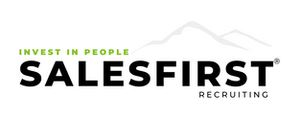Why So Many Sales Leaders Hire People They Like. And Why That Is a Common Trap.
Sales leaders know how important it is to hire the right people for our teams. We want to find candidates who have the skills, experience and fit for the role, and who can help us achieve your sales goals. But sometimes, and more than we care to admit, we can fall into a common trap: hiring someone we really like without fully assessing their suitability for the job.
Ask yourself if you’ve ever done any of these:
You’ve pursued a candidate who was charming, charismatic or attractive, and ignored red flags such as poor references, inconsistent performance or questionable ethics.
You overlooked other qualified candidates who may have had more relevant skills or experience, but who were less likable or more different from you.
You relied on your gut feeling instead of objective data, and justified your decisions based on inherent biases.
You deviated from a structured interview process and maybe even asked irrelevant questions that didn’t measure someone’s abilities or behaviors.
If you answered yes to any of these questions; congrats, you sound like a normal hiring manager who makes mistakes from time-to-time. Rest assured that you are not alone- especially in the sales community.
Why This Is So Common
This can happen to anyone, but it’s prevalent in sales. Obviously, liking someone is not enough to guarantee their success in sales. We know full well it can hurt our team’s performance, morale and retention. Yet, even the very best of us fall victim to this trap. Here is why:
Salespeople are naturally good at building rapport. They are generally charming, charismatic and persuasive. They know how to make a good first impression and connect with their prospects and customers. -And we hiring managers often find ourselves swayed by their personality and presentation skills. It’s so easy to get caught up in the excitement of hiring a great candidate that we can easily overlook their professional qualifications and experience and make our decisions based on how we personally feel about them. Just because someone makes a good impression, doesn’t mean they are a good.
Salespeople remind us of ourselves. People across the board have a tendency to hire people who remind them of themselves or their successful peers. We also have a natural bias towards certain traits or styles that they believe are essential for sales success, such as extraversion, assertiveness or optimism. This isn’t necessarily a bad thing in and of itself. It only becomes a bad thing when it’s the only criteria used to hire someone.
We naturally have a high sense of urgency. In our day-to-day lives, when we have a problem, we want it fixed as soon as possible. This is also true when it comes to hiring a new salesperson. We get excited about the idea of bringing someone on board who can quickly start making an impact. Unfortunately, this often leads us to rush decisions and not thoroughly evaluate.
We’ve learned to trust our gut. So many sales leaders rely on their instincts when making hiring decisions. After all, our gut feelings have led to success in our careers, right? But even though we trust our intuition, we also know deep down that relying on intuition alone is not enough.
How to Stay On Track
To avoid hiring people you like and focus on hiring people who are right for the job, the first step is to be aware of your own biases and how they affect your hiring decisions. Here are some tips to help you recognize when you are off track and create tools to get back into a structured interview process. We want to give you a few tools to help you improve, and we also want to give you a few tools incase you don’t!
Acknowledge your biases. Accept that you have biases, especially affinity bias — having a more favorable opinion of someone like you— which is one of the most common biases in hiring. Be honest with yourself about what attracts you to certain candidates and what repels you from others. Ask yourself if you actually agree with those biases? Chances are, you don’t.
Take pauses to check your emotions. Before moving forward with any decision, take a moment to evaluate if you’re feeling rushed or if your emotions are getting the best of you. If you are, just press your “mental reset” button and return to a structured, fair interview process.
Set up a structured interviewing process. Having clear goals and parameters for what your company is looking for in its new hire can help anchor the process and keep things on track. Create job descriptions that set out the desired skills, experience and qualifications. Write out the questions you plan to ask ahead of time and try to stick to them throughout all rounds. This will help ensure that you don’t miss anything important, or set up any unnecessary biases from the start.
Use pre-written behavioral-based interviews. Instead of asking situational questions such as "What would you do if…", ask behavioral questions like "Tell me about a time when…". This will help you assess how someone has performed in similar situations in the past, which is a better predictor of future performance. We also recommend a scorecard to rate each candidate’s answers based on predefined criteria.
Ask your peers to complement your interviewing weaknesses. One person can’t be an expert in everything, so partner with someone who has different strengths and weaknesses than yours. You don’t have to go through the entire process alone- you can tap into your organization’s existing resources or ask a colleague from another team to help you. “Abby, I really like this candidate I just interviewed, but I’m worried I didn’t dig deep enough. Will you interview that candidate and let me know the red flags you find?”
Test their skills and fit. To validate someone’s abilities and behaviors, ask them to complete a practical task that simulates what they will be doing on the job, such as a sales presentation, a cold call or a proposal. Make sure that you have some peers in the room who will give you fair, consistent feedback.
Conclusion
As sales leaders, we are often praised for our ability to build strong relationships with our clients. However, as the saying goes, with great power comes great responsibility. Our strength in connecting with others can lead to biases when hiring, and we must be aware of this in order to avoid costly mistakes. By acknowledging our own potential weaknesses and implementing structured screening processes, we can capitalize on our strengths while still building high-performing and diverse sales teams. Let's strive for excellence not only in our relationships with clients, but also in our hiring practices.
For more tips on hiring and to find great sales talent across all 50 states, please contact us at www.salesfirstrecruiting.com!

